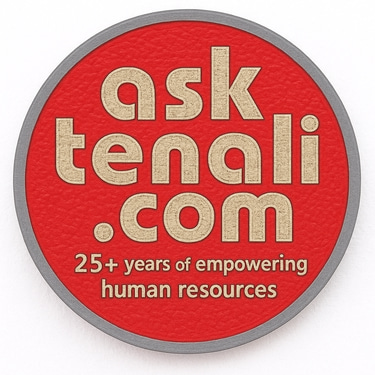Ace Your Exams: 21 DIY Hacks to Supercharge Your Study Skills in the USA (#USAStudyRevolution #DIYLearning #ConquerClassroomChallenges)
Feeling overwhelmed by textbooks and exams? American students are taking control with DIY study hacks! This article explores innovative, at-home study techniques for all learning styles. From crafting mind maps to utilizing online resources, discover 21 actionable tips to boost your focus, retention, and academic performance. Study smarter, not harder, and achieve your academic goals in the USA!
Asktenali
9/5/20243 min read

Feeling overwhelmed by textbooks and exams? American students are taking control with DIY study hacks! This article explores innovative, at-home study techniques for all learning styles. From crafting mind maps to utilizing online resources, discover 21 actionable tips to boost your focus, retention, and academic performance. Study smarter, not harder, and achieve your academic goals in the USA!
Education Evolved: DIY Study Hacks Empower Students in the USA
In the high-pressure academic environment of the USA, traditional study methods don't always cut it. Students are increasingly turning to DIY study hacks – creative, self-directed learning strategies – to conquer classroom challenges and excel in their studies. These hacks leverage readily available resources and cater to diverse learning styles, empowering students in the USA to take charge of their academic success.
Five Reasons Why DIY Study Hacks are Revolutionizing Education in the USA:
Personalized Learning: DIY hacks allow students to tailor their study approach to their individual strengths and weaknesses.
Accessibility and Affordability: Many hacks utilize free online tools and readily available materials, reducing financial burdens on students in the USA.
Boost Engagement and Focus: Interactive and creative study methods can make learning more enjoyable and help students stay focused.
Improved Information Retention: Active learning techniques, a core principle of DIY hacks, enhance information retention compared to passive studying.
Empowerment and Ownership: Taking control of their study approach fosters a sense of self-efficacy and motivation in students across the USA.
21 DIY Hacks to Unleash Your Inner A+ Student (Focus on USA context and actionable tips)
Craft Compelling Mind Maps: Visually represent relationships between concepts using colorful mind maps to enhance memorization.
Embrace the Power of Flashcards: Create digital or physical flashcards to test key concepts and definitions on the go – perfect for short bursts of studying during commutes or breaks between classes, a common challenge for busy US students.
Find a Study Buddy: Form a study group with classmates to quiz each other, discuss complex topics, and stay motivated.
Transform Your Space: Designate a clutter-free study zone at home to minimize distractions and optimize focus, especially important in shared living spaces common amongst US students.
Utilize the Pomodoro Technique: Break down study sessions into focused 25-minute intervals with short breaks in between to maintain focus and avoid burnout, a technique particularly useful for students juggling multiple commitments.
Leverage Online Resources: Explore educational websites, apps, and video tutorials that cater to your specific learning style and subject matter. Khan Academy, a US-based non-profit educational platform, is a great example.
Gamify Your Learning: Turn studying into a game by using online quizzes, educational apps with points and leaderboards, or creating your own study challenges.
Practice Active Recall: Test yourself on learned material without referring to your notes to solidify information retention.
Explain it Like You Mean It: Teaching a concept to a friend or imaginary audience reinforces understanding and clarifies areas needing further review.
Summarize and Synthesize: After reading a chapter or lecture, condense key points and ideas into your own words to improve comprehension.
Record Yourself: Record lectures or create audio summaries to review later during commutes or while exercising, a time management strategy for students with busy schedules.
Embrace the Power of Mnemonics: Create memory aids like silly phrases or acronyms to remember complex information, a common technique used by US students for standardized tests like the SAT.
Teach What You Learn: Volunteering as a tutor or explaining concepts to younger siblings can solidify your own understanding.
Reward Yourself: Set achievable study goals and celebrate your accomplishments with small rewards to maintain motivation.
Find Your Power Time: Identify the time of day when you feel most focused and schedule demanding study tasks for those periods.
Move Your Body: Take short breaks for physical activity to boost focus and retention during extended study sessions.
Mind the Noise: Minimize distractions by using noise-canceling headphones or studying in a quiet environment, particularly relevant for students living in dormitories or shared apartments.
Prioritize Sleep: Aim for a good night's sleep to improve cognitive function and information retention. The recommended amount of sleep for teenagers in the USA is 8-10 hours per night.
Power Down Before Bed: Avoid screens for at least an hour before bedtime to promote restful sleep crucial for academic performance.
Seek Help When Needed:
Important Links for DIY Study Hacks in the USA
Online Learning Platforms:
Khan Academy: https://www.khanacademy.org/ (Free online courses and tutorials)
Coursera: https://www.coursera.org/ (Online courses from top universities)
EdX: https://www.edx.org/ (Online courses from leading institutions)
Study Tools and Apps:
Anki: https://apps.ankiweb.net/ (Flashcard app for efficient studying)
Forest App: https://forestapp.cc/ (Productivity app that helps you stay focused)
Productivity and Time Management Tools:
Todoist: https://todoist.com/ (Task management app)
Trello: https://trello.com/ (Visual project management tool)
RescueTime: https://www.rescuetime.com/ (Time tracking and productivity app)
Note: This is not an exhaustive list, and it's recommended to explore a variety of resources and tools to find the best study methods that work for you.
